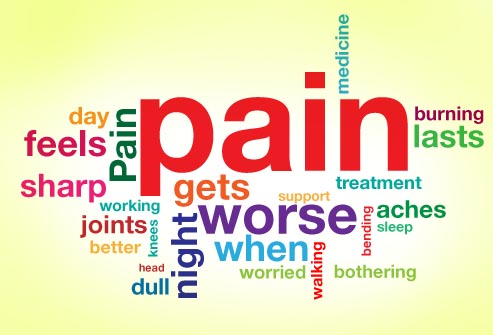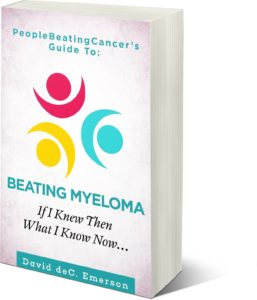
Recently Diagnosed or Relapsed? Stop Looking For a Miracle Cure, and Use Evidence-Based Therapies To Enhance Your Treatment and Prolong Your Remission
Multiple Myeloma an incurable disease, but I have spent the last 25 years in remission using a blend of conventional oncology and evidence-based nutrition, supplementation, and lifestyle therapies from peer-reviewed studies that your oncologist probably hasn't told you about.
Click the orange button to the right to learn more about what you can start doing today.
- You are here:
- Home »
- Blog »
- Multiple Myeloma »
- From IBD to Myeloma- Five Truisms of Incurable Disease
From IBD to Myeloma- Five Truisms of Incurable Disease

As incurable diseases go, Inflammatory Bowel Disease (IBD) and Multiple Myeloma (MM) could not be more different. IBD is localized to the lining of the intestinal tract and MM is a systemic blood cancer. While both are incurable diseases, IBD will not kill you but MM will.
The word incurable is frightening. When I read the NYTimes article linked and excerpted below, I thought the writer, an IBD survivor, was writing about my world as a long-term myeloma survivor. It turns out that her world only sounds like my world. But I will say that newly diagnosed myeloma patients can learn from what Tessa Miller has learned about her disease.
I’ve chosen to excerpt those words, those portions of the article that are written about Inflammatory Bowel Disese that also apply to Multiple Myeloma.
However unlikely it may sound, I now feel that myeloma survivors have a lot in common with IBD survivors.
Are you a newly diagnosed MMer? Do you have questions? Scroll down the page, post a question or comment and I will reply to you ASAP.
Thanks
David Emerson
- MM Survivor
- MM Cancer Coach
- Director PeopleBeatingCancer
Recommended Reading:
- Myeloma Cancer Coaching- Cure vs. Control Debate
- A Different kind of Second Opinion-Multiple Myeloma Cancer Coaching
- Cancer Coaching Testimonials- PeopleBeatingCancer
Five Things I Wish I’d Known Before My Chronic Illness
“Since that first hospital stay, I’ve had biopsies, CT scans, X-rays, blood tests, antibiotics, anti-inflammatories, opiates, steroids, immunoglobulin…
“When an illness that the doctors can’t cure becomes part of our life, all the rules seem to change,” said Paul K. Chafetz, Ph.D., a psychologist in Dallas. “It’s scary in a dozen ways.” I’ve learned countless lessons since the early days of my illness, but here are five I wish I’d known from the start.
The mental part is as hard as the physical part
“There is trauma related to certain aspects of illness or treatment, and fear of outcomes like death or disability,” said Matt Lundquist, LCSW, a psychotherapist in New York. “For many people, there are financial uncertainties of paying for medical care.” Plus, there’s anxiety over loss of autonomy and control, he said…
A therapist should be considered a crucial part of your care team, just as important as a gastroenterologist or cardiologist. “A provider who has experience working with chronic illness is key,” Mr. Lundquist said. “It’s a population whose mental health struggles can be misunderstood.”
Your relationships change
It’s hard to be a good employee when you need extended time off. It’s hard to be a good friend when you cancel plans last minute. It’s hard to be a good partner or parent when you barely have the energy to get out of bed…
Some relationships end entirely, casualties of an unfair and misunderstood illness, while others get stronger as you find your true support system.
But most of all, your relationship with yourself changes. You grieve a version of yourself that doesn’t exist anymore, and a future version that looks different than you’d planned.
You might have to give up career goals, hobbies and family plans, learning a “new normal” in their place. “In trauma therapy we call this ‘integration,’ the task of integrating a new reality into one’s life and worldview,” Mr. Lundquist said…
Everyone offers you advice
Here are a few of the things I’ve been told, unsolicited, to try over the years: yoga, meditation, essential oils, acupuncture, CBD oil, vaping, prayer, bone broth and [fill in the blank with the latest fad] diet. Some of these are great in conjunction with medical treatment — my doctor recommends meditation for stress relief, for example — but the advice is offered as a cure or a better alternative to whatever I’m already doing…
You have to educate yourself — and everyone else
Learning as much as I could helped me feel a sense of control, so I bought every available book and spent hours reading studies and forums online. I made lists of questions for my doctors and insisted they give me their personal phone numbers. I expected my friends and family to be as gung-ho as I was, but turns out, most of them never even Googled my disease. It was up to me to learn and teach — friends, family, bosses, partners — through conversations, books with passages marked, emails highlighting new research, and social media posts.”





